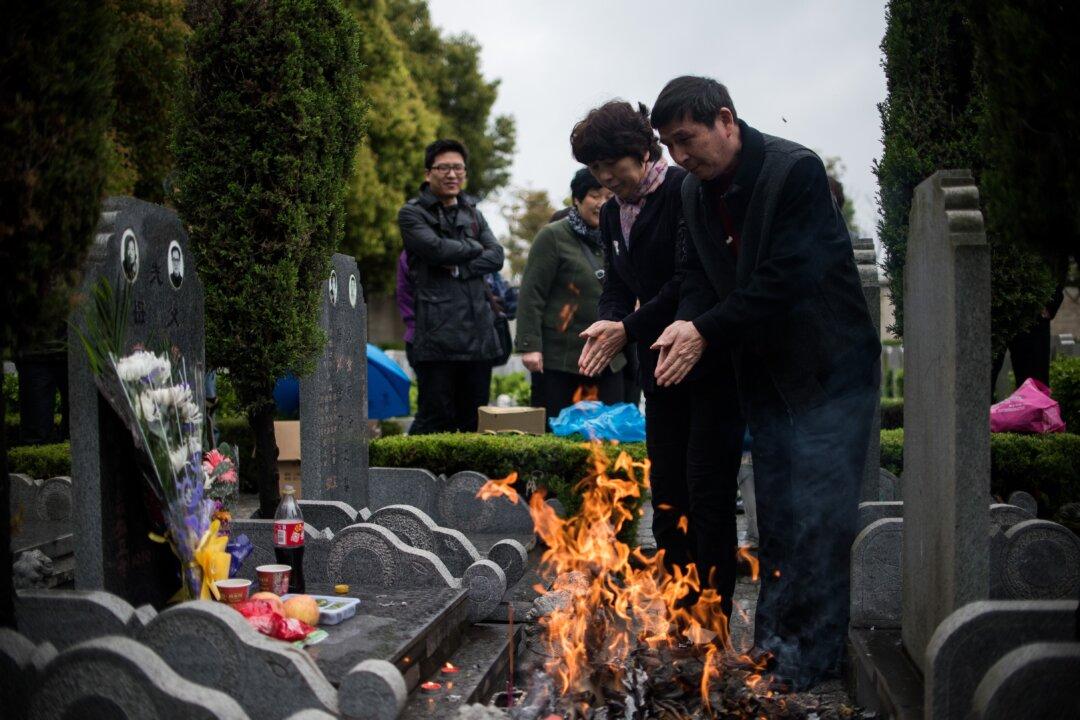It is an annual tradition for Chinese to visit the tombs of loved ones and ancestors on the 15th day after the Spring Equinox—called Qingming Festival, or Tomb Sweeping Day (this year it fell on April 5)— to clear weeds, place flowers, light incense, read eulogies, and weep openly.
But come the Internet age, mainland Chinese have begun outsourcing their reverence to professionals.
A range of businesses now offering a soup-to-nuts veneration service on behalf of family members—for a fee.




